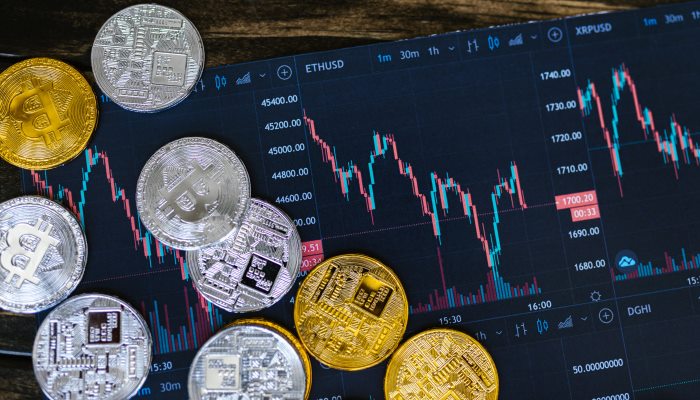The decentralized technology behind bitcoin, the blockchain, is not only revolutionizing finance but also the way existing supply chains function. The ultimate goal of this integration is to make goods more sustainable and cost-effective from production to consumption. In addition, this new economy offers a novel approach to creating mutually beneficial partnerships among all stakeholders in the supply chain – suppliers, distributors, retailers and consumers. Here’s a comprehensive guide to the possibility of Bitcoin competing with gold as a means of storing value.
The new economy also creates opportunities for entrepreneurs with innovative products or services in niche areas such as green energy or digital health care IT solutions which can enter into networks with other established industries using those technologies. These networks can facilitate collaboration, leverage and availability of services at a reduced cost.
But the supply chain is a complex system with too many moving parts with numerous participants to make agreements and contracts effective in today’s business environment. For this reason, new business avenues must be discovered that shorten transaction times and allow for greater transparency in the supply chain.
Another way to improve efficiency is to create decentralized networks among all participants that can operate on various global or national levels depending on their specific needs. In this context, blockchain technology offers an innovative solution to these problems by ensuring transactions are fair, reliable and secure. Let’s discuss the advantages of a bitcoin and blockchain-infused economy.

A Trustable Economy:
Gone are the days when we needed to deal with Swiss bank account numbers and credit cards. Instead, the new buzzword is blockchain or distributed ledger technology. Blockchain is a technological leap in trustless transactions, which is why it has taken centre stage in the global economy in recent years.
Distributed ledgers are information records shared among networked computers instead of central servers. Peer-to-peer technology prevents hacking and data manipulation because each participant has a full copy of the records and can see who updates them. It makes it more difficult for hackers to get through, manipulate or falsify information on a blockchain’s ledger. Blockchain technology is creating trustless transactions; the best part is that it is transparent by design. U
A Peer-to-Peer Economy:
A peer-to-peer (P2P) economy differs from a centralized one in that there are no formal channels for exchanging goods, services or money. Instead, individual participants interact directly with each other as equals and on their time schedules. They maintain their currencies and transaction records on publicly accessible blockchains. Participants do not have to go through a third party like financial institutions or government agencies like PayPal to conduct business transactions because their records will be kept in a decentralized database held by all interested parties.
A P2P economy also eliminates the need for standard financial intermediaries like banks, savings and loan associations, or credit card companies. As a result, there are no central clearinghouses (CCPs) to hold all the records of transactions and balances for every person or organization involved in the network. Instead, all participants have a full copy of all transactions on the blockchain.
A Bitcoin and Blockchain-infused economy are fast-paced because it has no central authority. As a result, participants engage in instant, trustless transactions that occur immediately at a meagre cost compared to other forms of payment. Decentralized ledgers also allow global peer-to-peer commerce without any restrictions or regulation by any government entity.
No contractual failure:
In today’s business world, many contracts are built on the certainty that one party will perform one or more actions. While this may be true in a centralized economy, agreements in a P2P economy are based more on personal integrity and shared purpose than they are on the mechanisms of enforcing performance.
So if you are operating with a peer-to-peer network such as blockchain technology and your partners have not delivered their share of the deal, there is nothing to stop you from sharing your knowledge with others who may be interested in it and thus making sure that they get access to your product or service.
Because there is no central authority overseeing transactions and records between all parties involved in the blockchain networks, there is no arbitration process. Thus, the parties are responsible for making their contractual arrangements according to their standards and practices.

Innovative Bitcoin and Blockchain-infused economy:
Bitcoin has been with us for over a decade since it was created in 2009. However, the global financial crisis of 2007-2008 that shook the world and was triggered by a real estate bubble in the United States led to an economic recession of historic proportions. The crisis left deep economic wounds with millions of workers out of work and stock markets worldwide crashing. In addition, this event sparked a rise in anti-establishment political movements that had far-reaching implications worldwide.
A significant consequence of the crisis was that it gave rise to a new political dimension in the economy. On the one hand, people demanded more government intervention and regulation to control financial institutions and businesses. But conversely, a new school of thought emerged as users opposed big government and political elites. These movements were reflected in several elections all around the world, most notably in India, Ukraine, Italy and Spain.
The sudden appearance of blockchain technology brought a flood of new prosperity in less than ten years after the 2007-2008 economic recession. While these two events seem unrelated at first glance, they are tied together by Bitcoin’s underlying technology known as blockchain or distributed ledger technology.






